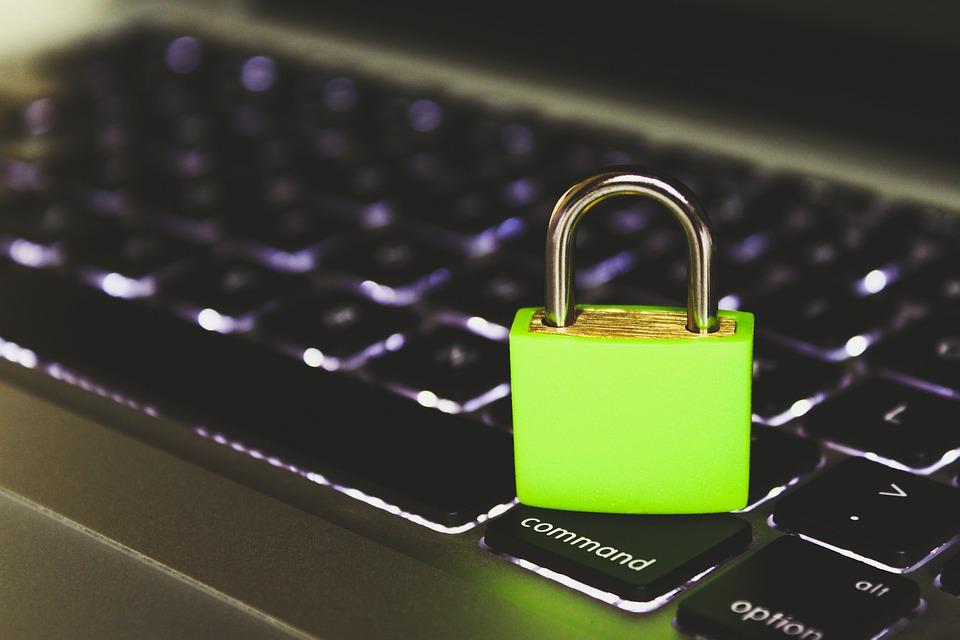The team at Wisconsin Buys Local is super passionate about Wisconsin-owned businesses, about shopping and exploring all that Wisconsin has to offer! We want to be mindful of keeping our hard-earned money here, in Wisconsin, when we can. Reach out today to find out more!

Cybersecurity Basics for Business Owners
As businesses have increased their online activity and ecommerce options in recent years, especially during the pandemic, concerns regarding internet security have also increased. Cyber threats and hacking are on the rise, so business owners need to be prepared not only to protect their company but also to deal with a cyber attack should it actually happen. Wisconsin Buys Local gives you the basics every entrepreneur should know, regarding the principles of business cybersecurity.
Keep your devices secure.
We use our tech devices so casually, sometimes we forget how important it is to keep them, and the information on them, secure. Any device that has any sensitive or important information on it – whether business or personal – should be password-protected. And CNET notes that your passwords should be strong enough to stymie a casual hacker. Encryption and multi-factor authentication can also help you keep your devices safe.
Some internet service providers add an extra layer of protection with network-based security, which runs in the background and is compatible with most devices and any operating system. Ask your provider if such safeguards are in place. Providers that do offer network security normally do not charge for it and it doesn’t even need to be downloaded; you simply have to give them the go-ahead. The good news is that these security features are updated often to stay on top of the latest threats.
Store your files safely.
TechRepublic points out that your files containing important or confidential information should always be backed up on an external hard drive, or in the cloud; all files should be backed up safely, so you can access them when necessary. Old files that are no longer in use, but which contain important information should be deleted entirely. Consider backing up even those files and documents that are less sensitive, in order to save time trying to locate useful information, should they be lost.
Secure your networks.
You need to make sure your home or business wi-fi is inaccessible to unauthorized users who otherwise might connect to your network and access your information. One way to do this is to rename your router and your networks, so you will be less identifiable to outsiders. You can also install a firewall, or multiple firewalls, between your network and the rest of the web. Another security precaution that can make a big difference is a Virtual Private Network (VPN) which will hide your activity and shield your identity.
Train your team.
Cybersecurity needs to be a priority not only for the business owner, but for anyone who works for the company. Managers should not assume that employees are educated on protecting from cyber threats, but rather should lay out a clear policy for everyone using the company network. Your cybersecurity protocols will be more effective if you have good, solid employee relations, and have given your team a reason to invest in the success and safety of the company.
Have a recovery plan.
Even with your best efforts, it is still possible that your business could become the victim of a cybersecurity attack, or have its data compromised in some other way, such as through natural disasters or human error. Should this happen, having a plan for recovery will soften the blow. A good recovery plan will allow you to protect valuable data in the event of a security breach. Your recovery plan will be more effective with preventative measures such as layered infrastructure and if you utilize a single interface for monitoring your data.
Breach Monitoring.
Private and personal information is constantly being breached (stolen) from websites and services across the Web. Breached data can include names, passwords, physical and email addresses, financial information, account/usage history, credit card and other financial information, and more. The bad guys use this information to access your accounts (the breached one and others), to build social engineering profiles, drain your finances, and steal your identity. This is bad enough at a personal level, but can also be catastrophic for your business.
While you've probably noticed the news and your web browser alerting you to breached/weak passwords, it's incredibly important to get notified when a breach occurs so you can take fast action such as resetting passwords. Wisconsin Buys Local offers a proactive and inexpensive breach monitoring service for our business members that can monitor all of the email addresses within your company. To learn more how to get this piece of mind, read our Protect Your Business For As Little As $1/month blog article.
Hire a cybersecurity professional.
A cybersecurity professional can assist you with making changes to your devices and network to improve security. They can also assess how secure your network is and make recommendations for improvement. Consider hiring an ethical hacker to test your network for you. You can find certified ethical hackers, and compare their rates, reviews, and services, on online job boards like Upwork.
With so many ever-changing threats to your network security out there, educating yourself on cybersecurity is an important part of business management. And there are many resources and professionals who can aid you in this. Research those companies and experts who help entrepreneurs with such important cybersecurity services as installation, troubleshooting, and removal of viruses -- you’ll sleep easier knowing all is safe.
Image via Pixabay